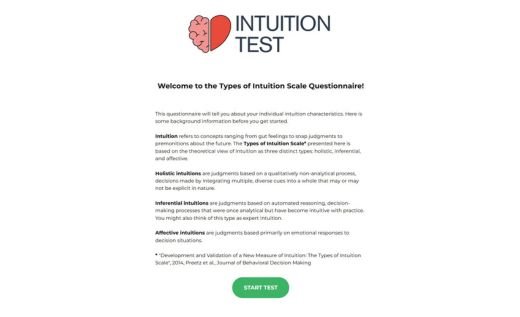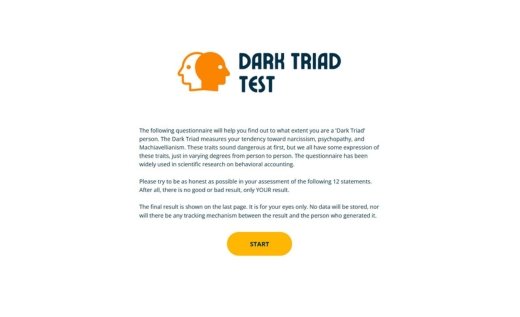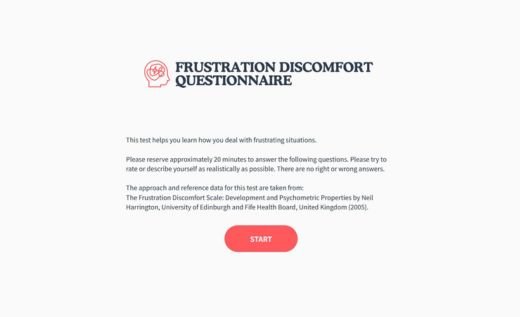Moral Commitment Test
The Morality and Sacred Values Test (originally Geschützte Werte Skala, or GWS) is a scientifically validated tool designed to assess how strongly a person upholds certain ethical standards that they consider absolute and beyond compromise. Developed in 2009 by C. Tanner, B. Ryf, and M. Hanselmann*, this assessment explores the role of emotional and moral judgment in decision-making, beyond mere logic or practicality. It is especially relevant for understanding ethical behavior in professional and social contexts.
The moral commitment test is used to evaluate consistency between personal beliefs and behavioral responses to real-world dilemmas. Researchers analyze results to understand moral reasoning patterns across different groups. In applied settings, HR professionals, psychologists and coaches may use this moral values test to screen for roles requiring ethical sensitivity, or to explore how candidates align with organizational culture.
You can add this ready-made form template to your AidaForm Expert account and start testing online right away! Curious about your own results? For personal use, the test is fully anonymous, with no signup or payment required — results are shown instantly and reflect your moral compass across various scenarios.
https://doi.org/10.1026/0012-1924.55.3.174
How to Use the Morality Test Template in AidaForm
Switching from paper-based assessments to digital ones opens up entirely new possibilities—and AidaForm makes this transition effortless. Whether you’re working in academic research, HR or coaching, the platform enables you to build, distribute and analyze values-based assessments with professional polish and precision. With AidaForm, you get a secure, no-code environment where each submission is automatically scored and stored in your account—ready for export, evaluation or archiving.
One of the main advantages of using AidaForm for testing is automation. All scoring is handled by the form itself—no need to manually calculate results or enter data into spreadsheets. Even complex scoring logic can be pre-configured using formulas that reflect the original study’s metrics. The moment a respondent finishes the test, results are calculated instantly and can be shown on the final page or sent to a specific email address.
You can also export the data in various formats, including CSV, Excel and PDF. This flexibility makes it easy to include assessment data in your HR files, research datasets or coaching reports. Whether you’re evaluating an individual or analyzing a group, all collected information is stored in one place and easily accessible from your AidaForm dashboard.
And customization doesn’t stop at data handling. With AidaForm, you can fully personalize your morality test—add your logo and colors, translate the content into any language or update the introductory and final screens. Want to adapt the tone for a professional setting? Add ethical disclaimers, legal terms or motivational messaging. Need to tweak the rating scales or replace terminology to suit your organization’s context? Everything in the form is editable—so the tool becomes yours, not just a fixed template.
If you’re working in a team or managing multiple assessments, AidaForm’s automation tools are especially useful. Through Zapier, you can connect the test to platforms like Google Sheets, Trello, Slack or Notion. Set up workflows where a certain score triggers a follow-up test, an alert to a manager or a file upload request. These integrations are simple to configure and turn a static test into a living part of your talent pipeline or research process.
For HR professionals and organizational psychologists, online assessments offer new insights when screening candidates or evaluating employee development. You can use the test to identify ethical decision-making styles, openness to discussion and sensitivity to boundary violations. It’s especially helpful for leadership roles or positions that involve high accountability. For example, if someone consistently interprets ethically gray actions as acceptable or admirable, that may suggest a moral alignment gap between the person and your company’s core values.
And yes—AidaForm makes it easy to ensure confidentiality. The test can be made entirely anonymous, with no name or email field. But if you need to track results by person or department, simply add those fields back in. It’s your choice. This flexibility makes the test useful in both academic settings—where anonymity may be ethically required—and corporate workflows, where tracking progress and development is key.
To get started, follow these quick steps:
- Sign up for your free AidaForm account.
- Click Use This Template to add the test to your dashboard.
- Edit the content and settings as needed—adjust scoring, change visuals, add disclaimers.
- Enable notifications or integrations (Zapier, Google Sheets, Slack, Trello, etc.).
- Publish the form and share the direct link or embed it on your site.
Participants can take the test from any device—smartphone, tablet or computer. There’s no software to install and no account required. And because the form uses a unique URL, you can send it via email, messenger, internal portals or social media. It’s ready when you are.
Sacred Values (or Protected Values): Definition and Examples
Some values go far beyond personal preference—they represent core beliefs. These are known as protected values in behavioral ethics: principles so essential that people refuse to compromise on them, even when doing so would bring personal or professional benefits.
For example, someone might reject a bribe or refuse to lie to protect their team, despite potential losses. These choices are shaped not by strategy, but by firm moral boundaries rooted in personal, cultural or religious convictions.
In organizational life, this can be both a strength and a challenge. Employees with strong values may act as ethical stabilizers, yet they may struggle in systems that require compromise. Understanding where someone draws moral lines can help leaders foresee tensions or ensure value alignment across teams.
The Protected Values Test offers realistic ethical scenarios and relevant questions—like a doctor receiving favors or a civil servant accepting payments—and asks respondents to rate actions across dimensions like blame, praise and acceptability. These responses reveal what individuals see as negotiable, and what they consider untouchable.
Such data is useful in coaching, HR screening and group analysis. It brings clarity to decision-making tendencies and helps organizations identify shared norms—or the lack thereof.


